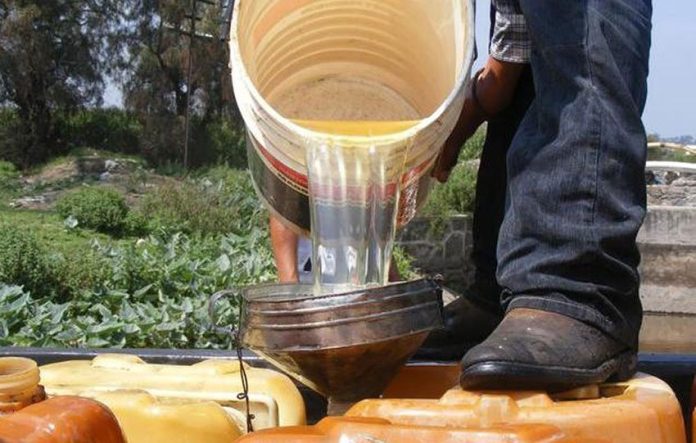The state oil company is arming and training some employees to combat the high incidence of pipeline petroleum theft.
Information obtained by the newspaper El Universal reveals that personnel from the company’s “strategic safeguard” section are receiving training in the use of firearms and other strategies to protect Pemex’s infrastructure and repel attacks by fuel thieves.
The stated role of the division, created following modifications to Pemex bylaws in 2014, is to “provide comprehensive security for company personnel, facilities, assets and stock.”
El Universal requested information from Pemex about how many employees work with the section and what kind of weapons they use but didn’t receive a response.
However, the company did say that it is bolstering the presence of its specially-trained security personnel in regions of the country where the rates of petroleum pipeline theft are highest.
As part of the strategy to fight the crime, coordination centers and command posts manned by personnel from different security forces are also being planned.
Fuel theft, perpetrated by gangs of thieves known as huachicoleros, has reached record levels this year.
There were 10,101 illegal taps on state-owned pipelines in the first eight months, according to Pemex data, 3,367 more than in the same period of 2017.
Puebla recorded the highest number of taps, with 1,521, followed by Hidalgo and Guanajuato, where 1,256 and 1,188 illegal perforations were detected.
Army and navy personnel as well as state police are also receiving specialized training in the prevention of the theft of fuel and its commercialization on the black market.
In addition, Pemex has contracted a private security company whose role includes stopping collusion between company employees and fuel thieves.
Energy Secretary Pedro Joaquín Coldwell said last month that stopping petroleum theft is difficult because mayors and Pemex are involved in the crime.
Pemex CEO Carlos Treviño said in April that fuel theft costs the state-owned company 30 billion pesos (US $1.5 billion) a year although with the incidence of the crime on the rise, the figure is likely significantly higher now.
There is evidence that some of Mexico’s notorious drug cartels have moved into the lucrative illicit market as they seek to diversify their revenue sources. Petroleum theft is also linked to surging rates of violent crime in some parts of the country, most notably Guanajuato, where homicide rates have soared.
Combating insecurity will be one of the biggest challenges faced by president-elect López Obrador.
He said last month that Mexico will be divided into 265 regions as part of the incoming government’s security strategy and that between 300 and 600 members of the army, navy and Federal Police will be deployed to each region depending on their population and crime rate.
Source: El Universal (sp)
